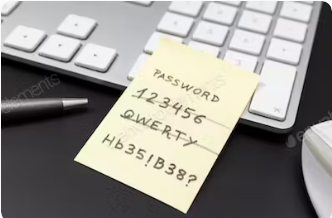In today’s digital age, where virtually every aspect of our lives has become intertwined with the internet, the importance of robust password management cannot be overstated. Strong, unique passwords are an essential line of defense, safeguarding our most sensitive data and digital identities from unauthorized access. In this blog, we’ll explore the best practices and tips for effective password management, empowering individuals and organizations to fortify their online security and privacy.
The Importance of Secure Passwords:
The challenges of cyber threats, data breaches, and identity theft are omnipresent in our digitally connected world. Strong, well-managed passwords serve as a crucial barrier against unauthorized access, protecting personal information, financial data, and confidential communications from exploitation and compromise. By implementing thoughtful password management practices, individuals and organizations can elevate their resilience against cyber risks and safeguard their digital assets.
Key Password Management Best Practices:
- Utilize Complex and Unique Passwords: Opt for passwords that are both complex and unique, incorporating a mix of uppercase and lowercase letters, numbers, and special characters. Avoid using easily guessable information such as names, birthdates, or common phrases, and refrain from reusing passwords across multiple accounts.
- Leverage Password Managers: Consider utilizing reputable password management tools to securely store and organize your passwords. Password managers streamline the process of creating, managing, and auto-filling complex passwords, providing a secure, encrypted repository for sensitive login information.
- Enable Multi-Factor Authentication (MFA): Wherever possible, implement multi-factor authentication (MFA) for your accounts to add an extra layer of security. MFA requires users to provide multiple forms of verification, typically a password and a temporary code sent to a mobile device, further fortifying access to accounts.
- Regularly Update and Rotate Passwords: Establish a practice of regularly updating and rotating passwords, particularly for high-value accounts and sensitive systems. This proactive measure mitigates the risk of password-based attacks and unauthorized access resulting from compromised credentials.
- Be Wary of Phishing and Social Engineering: Be vigilant against phishing attempts and social engineering tactics designed to elicit your passwords or personal information. Exercise caution when responding to unsolicited requests for login credentials, and be mindful of the authenticity of digital communications and online forms.
- Educate and Encourage Strong Password Practices: Promote awareness and education on effective password practices within your organization or community. Communicate the significance of strong, unique passwords and underscore the collective responsibility of defending against cyber threats through robust password management practices.
Effective password management lies at the heart of safeguarding our digital identities and data assets. By adhering to best practices and adopting secure, proactive measures, individuals and organizations can fortify their defenses against cyber risks, ultimately enhancing their resilience and trust in the digital realm. Embracing the art of effective password management empowers us to navigate the complex and ever-evolving landscape of cyberspace with confidence and security.
